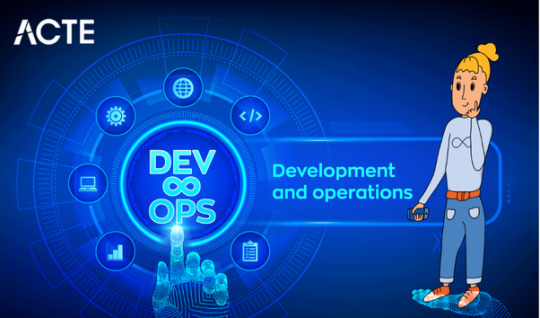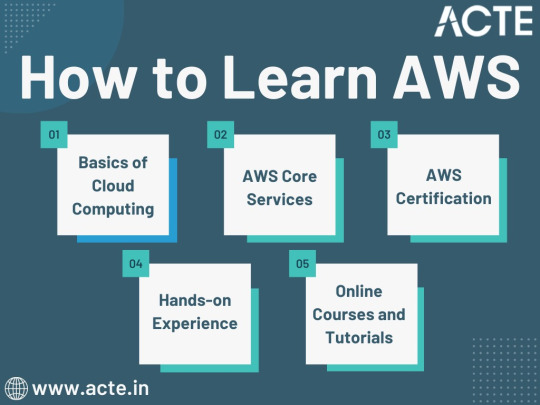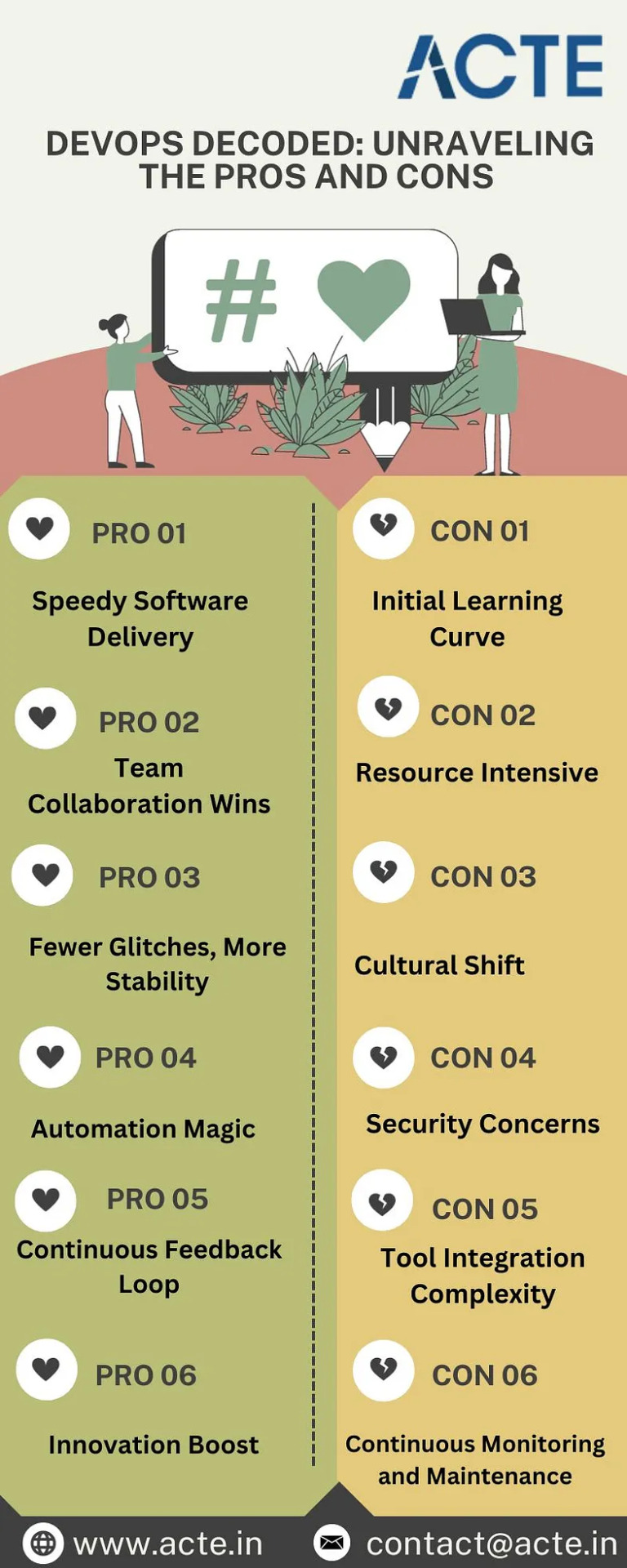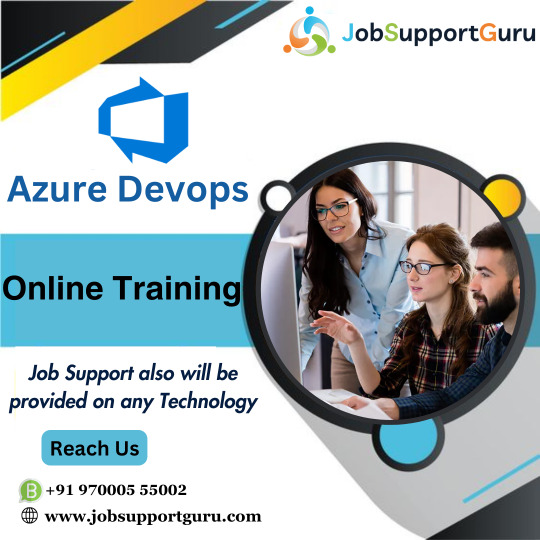#devops training provider
Explore tagged Tumblr posts
Text
Best DevOps Engineering Training and Cloud Computing Certification for Career Growth
Take your career to new heights with top-tier DevOps training programs and the best cloud computing certification. Our DevOps training provider offers over 100 hands-on projects and real-world scenarios, giving you an immersive learning experience in the DevOps cycle. Perfect for those aiming to become DevOps engineers or seeking to expand their expertise in Cloud computing, our courses are designed to equip you with the skills and knowledge needed to succeed. Whether you want to dive into DevOps tools or learn industry-standard processes, our training programs prepare you for success.
2 notes
·
View notes
Text



Levitica Technologies Pvt Ltd, established in 2013, specializes in web development and testing. We have branches in Hyderabad and Rajahmundry; the Hyderabad office focuses on project execution, while the Rajahmundry branch is dedicated to training and placement services.
#software companies in rajahmundry#Software Development Companies in Rajahmundry#Software Companies in Andhra Pradesh#Software Trainings in Rajahmundry#Software Course Training in Rajahmundry#Software Testing Courses in Rajahmundry#Full Stack Development in Rajahmundry#Digital Marketing Course in Rajahmundry#AWS Course in Rajahmundry#Devops Course in Rajahmundry#Linux Course in Rajahmundry#Best Software Training Institute in Rajahmundry#Best Placement Provider in Rajahmundry
2 notes
·
View notes
Text
Navigating a Bright Future Career With Devops: A Beginner Guide:
Welcome to DevOps, where collaboration, speed, and efficiency converge to revolutionize software development and operations. If you’re wondering whether a career in DevOps is a smart move, this blog is here to explain why it’s not just good but potentially fantastic From the best Software Training Institute.

Understanding DevOps: Bridging Development and Operations: DevOps isn’t just a term; it’s a way of working that brings together development and operations teams. The aim is to streamline processes, boost efficiency, and deliver top-notch software at a faster pace.
Why DevOps Rocks:
Speedy and Efficient: DevOps speeds up software development, getting products and features to market faster.
Collaboration Magic: It breaks down barriers between development and operations teams, promoting smooth collaboration and communication.
Continuous Integration and Continuous Delivery (CI/CD): DevOps loves CI/CD pipelines, making sure testing and delivery are automated, keeping software deployable all the time.
Automation Marvel: DevOps relies heavily on automation, getting rid of manual tasks and lowering the risk of errors.
Is DevOps a Top-notch Career Choice? Absolutely! Here’s Why:
1. Huge Demand: Companies worldwide see the value of DevOps. The need for skilled professionals is always on the rise.
2. All-Round Skills: DevOps experts know both development and operations, making them valuable with a comprehensive view of the entire software delivery process.
3. Great Pay: With the growing demand for DevOps skills, salaries are competitive, reflecting the high level of expertise.
4. Continuous Learning Adventure: DevOps doesn’t stand still. It evolves with technology, offering a journey of continuous learning and skill development.
5. Master Problem Solver: DevOps professionals are trouble-shooters. They find bottlenecks, improve processes, and enhance the overall efficiency of software development.

1. Get the Basics: Understand the core DevOps concepts, practices, and tools. Grasp the fundamentals of version control, automation, and CI/CD.
2. Build Technical Skills: Get good at essential tools like Git, Jenkins, Docker, and Kubernetes. Learn scripting languages like Python or Shell.
3. Know Cloud Platforms: DevOps and the cloud go hand in hand. Learn the basics of cloud platforms like AWS, Azure, or Google Cloud.
4. Embrace Automation: Automation is key in DevOps. Master configuration management tools like Ansible or Puppet.
5. Develop Soft Skills: Communication, collaboration, and problem-solving are crucial in DevOps. Develop these soft skills alongside your technical know-how.
In a nutshell, a career in DevOps isn’t just good; it’s a gateway to a thriving and satisfying professional journey. As businesses worldwide adopt DevOps practices, professionals in this field are in high demand. Whether you’re starting fresh or considering a career shift, embracing DevOps could be the ticket to a world of opportunities.
Whether you’re a seasoned professional or just starting your journey, embracing DevOps Course in Chennai opens up a world of opportunities in the ever-evolving tech landscape. Get ready to unleash the full potential of DevOps!
#devops#devops training#devops course#devops consulting services#devops methodology#devops services providers
0 notes
Text
Build the Future of Tech: Enroll in the Leading DevOps Course Online Today
In a global economy where speed, security, and scalability are parameters of success, DevOps has emerged as the pulsating core of contemporary IT operations. Businesses are not recruiting either developers or sysadmins anymore—employers need DevOps individuals who can seamlessly integrate both worlds.
If you're willing to accelerate your career and become irreplaceable in the tech world, then now is the ideal time to sign up for Devops Course Online. And ReferMe Group's AWS DevOps Course is the one to take you there—quicker.

Why DevOps? Why Now?
The need for DevOps professionals is growing like crazy. As per current industry reports, job titles such as DevOps Engineer, Cloud Architect, and Site Reliability Engineer are among the best-paying and safest careers in technology today.
Why? Because DevOps helps businesses to:
Deploy faster using continuous integration and delivery (CI/CD)
Boost reliability and uptime
Automate everything-from infrastructure to testing
Scale apps with ease on cloud platforms like AWS
And individuals who develop these skills are rapidly becoming the pillars of today's tech teams.
Why Learn a DevOps Online?
Learning DevOps online provides more than convenience—it provides liberation. As a full-time professional, student, or career changer, online learning allows you:
✅ To learn at your own pace
✅ To access world-class instructors anywhere
✅ To develop real-world, project-based skills
✅ To prepare for globally recognized certifications
✅ J To join a growing network of DevOps learners and mentors
It’s professional-grade training—without the classroom limitations.
What Makes ReferMe Group’s DevOps Course Stand Out?
The AWS DevOps Course from ReferMe Group isn’t just a course—it’s a career accelerator. Here's what sets it apart:
Hands-On Labs & Projects: You’ll work on live AWS environments and build end-to-end DevOps pipelines using tools like Jenkins, Docker, Terraform, Git, Kubernetes, and more.
Training from Experts: Learn from experienced industry experts who have used DevOps at scale.
Resume-Reinforcing Certifications: Train to clear AWS and DevOps certification exams confidently.
Career Guidance: From resume creation to interview preparation, we prepare you for jobs, not course completion.
Lifetime Access: Come back to the content anytime with future upgrades covered.
Who Should Take This Course?
This DevOps course is ideal for:
Software Developers looking to move into deployment and automation
IT Professionals who want to upskill in cloud infrastructure
System Admins transitioning to new-age DevOps careers
Career changers entering the high-demand cloud and DevOps space
Students and recent graduates seeking a future-proof skill set
No experience in DevOps? No worries. We take you from the basics to advanced tools.
Final Thoughts: Your DevOps Journey Starts Here
As businesses continue to move to the cloud and automate their pipelines, DevOps engineers are no longer a nicety—they're a necessity. Investing in a high-quality DevOps course online provides you with the skills, certification, and confidence to compete and succeed in today's tech industry.
Start building your future today.
Join ReferMe Group's AWS DevOps Course today and become the architect of tomorrow's technology.
2 notes
·
View notes
Text
DevOps AWS Training| IntelliQIT | Best DevOps AWS Training in Hyderbad
Ameerpet in Hyderabad is a hub for IT training, offering many institutes for DevOps courses. DevOps helps automate and improve software development and IT operations. Here are some things to look for when choosing a best devops training institute in hyderabad:
Comprehensive Course Content
Covers essential DevOps tools like Jenkins, Docker, Git, and Kubernetes.
Includes both basic and advanced topics.
Hands-on Training
Focus on real-time projects to get practical experience.
Live demos and interactive sessions.
Flexible Learning Options
Offers both online and classroom classes to suit your schedule.
Some institutes provide free demo classes.
Placement Support
Helps with job placements through resume building and interview prep.
Offers guidance for certifications if needed.
Experienced Trainers
Trainers with real-world DevOps experience.
Good student-to-trainer ratio for personalized attention.
When choosing an institute, make sure it offers practical training, expert guidance, and good placement opportunities to kickstart your career in DevOps.
#devops training institutes in ameerpet#best devops training institute in hyderabad#devops training in ameerpet
2 notes
·
View notes
Text
Why Python Will Thrive: Future Trends and Applications
Python has already made a significant impact in the tech world, and its trajectory for the future is even more promising. From its simplicity and versatility to its widespread use in cutting-edge technologies, Python is expected to continue thriving in the coming years. Considering the kind support of Python Course in Chennai Whatever your level of experience or reason for switching from another programming language, learning Python gets much more fun.

Let's explore why Python will remain at the forefront of software development and what trends and applications will contribute to its ongoing dominance.
1. Artificial Intelligence and Machine Learning
Python is already the go-to language for AI and machine learning, and its role in these fields is set to expand further. With powerful libraries such as TensorFlow, PyTorch, and Scikit-learn, Python simplifies the development of machine learning models and artificial intelligence applications. As more industries integrate AI for automation, personalization, and predictive analytics, Python will remain a core language for developing intelligent systems.
2. Data Science and Big Data
Data science is one of the most significant areas where Python has excelled. Libraries like Pandas, NumPy, and Matplotlib make data manipulation and visualization simple and efficient. As companies and organizations continue to generate and analyze vast amounts of data, Python’s ability to process, clean, and visualize big data will only become more critical. Additionally, Python’s compatibility with big data platforms like Hadoop and Apache Spark ensures that it will remain a major player in data-driven decision-making.
3. Web Development
Python’s role in web development is growing thanks to frameworks like Django and Flask, which provide robust, scalable, and secure solutions for building web applications. With the increasing demand for interactive websites and APIs, Python is well-positioned to continue serving as a top language for backend development. Its integration with cloud computing platforms will also fuel its growth in building modern web applications that scale efficiently.
4. Automation and Scripting
Automation is another area where Python excels. Developers use Python to automate tasks ranging from system administration to testing and deployment. With the rise of DevOps practices and the growing demand for workflow automation, Python’s role in streamlining repetitive processes will continue to grow. Businesses across industries will rely on Python to boost productivity, reduce errors, and optimize performance. With the aid of Best Online Training & Placement Programs, which offer comprehensive training and job placement support to anyone looking to develop their talents, it’s easier to learn this tool and advance your career.

5. Cybersecurity and Ethical Hacking
With cyber threats becoming increasingly sophisticated, cybersecurity is a critical concern for businesses worldwide. Python is widely used for penetration testing, vulnerability scanning, and threat detection due to its simplicity and effectiveness. Libraries like Scapy and PyCrypto make Python an excellent choice for ethical hacking and security professionals. As the need for robust cybersecurity measures increases, Python’s role in safeguarding digital assets will continue to thrive.
6. Internet of Things (IoT)
Python’s compatibility with microcontrollers and embedded systems makes it a strong contender in the growing field of IoT. Frameworks like MicroPython and CircuitPython enable developers to build IoT applications efficiently, whether for home automation, smart cities, or industrial systems. As the number of connected devices continues to rise, Python will remain a dominant language for creating scalable and reliable IoT solutions.
7. Cloud Computing and Serverless Architectures
The rise of cloud computing and serverless architectures has created new opportunities for Python. Cloud platforms like AWS, Google Cloud, and Microsoft Azure all support Python, allowing developers to build scalable and cost-efficient applications. With its flexibility and integration capabilities, Python is perfectly suited for developing cloud-based applications, serverless functions, and microservices.
8. Gaming and Virtual Reality
Python has long been used in game development, with libraries such as Pygame offering simple tools to create 2D games. However, as gaming and virtual reality (VR) technologies evolve, Python’s role in developing immersive experiences will grow. The language’s ease of use and integration with game engines will make it a popular choice for building gaming platforms, VR applications, and simulations.
9. Expanding Job Market
As Python’s applications continue to grow, so does the demand for Python developers. From startups to tech giants like Google, Facebook, and Amazon, companies across industries are seeking professionals who are proficient in Python. The increasing adoption of Python in various fields, including data science, AI, cybersecurity, and cloud computing, ensures a thriving job market for Python developers in the future.
10. Constant Evolution and Community Support
Python’s open-source nature means that it’s constantly evolving with new libraries, frameworks, and features. Its vibrant community of developers contributes to its growth and ensures that Python stays relevant to emerging trends and technologies. Whether it’s a new tool for AI or a breakthrough in web development, Python’s community is always working to improve the language and make it more efficient for developers.
Conclusion
Python’s future is bright, with its presence continuing to grow in AI, data science, automation, web development, and beyond. As industries become increasingly data-driven, automated, and connected, Python’s simplicity, versatility, and strong community support make it an ideal choice for developers. Whether you are a beginner looking to start your coding journey or a seasoned professional exploring new career opportunities, learning Python offers long-term benefits in a rapidly evolving tech landscape.
#python course#python training#python#technology#tech#python programming#python online training#python online course#python online classes#python certification
2 notes
·
View notes
Text
Introduction to SkillonIT Learning Hub- Empowering Rural Talent With World-Class IT Skills
SkillonIT provides IN-Demand IT courses, connecting Rural talent with rewarding IT skills through affordable, accessible and career-focused education. with Guaranteed pathways to internship and high paying jobs, start with us and step into Opportunities at top Tech-leading Companies. Skillonit Learning Hub, located in Buldhana, Maharashtra, is a leading institute dedicated to equipping individuals with cutting-edge technology skills. With a mission to bridge the digital divide, the institute provides high-quality education in various IT and professional development domains. Skillonit focuses on practical, industry-oriented training, ensuring students gain the expertise needed to thrive in today’s competitive job market. The hub is committed to empowering rural talent and shaping the next generation of skilled professionals.

Courses Offered Skillonit Learning Hub offers a diverse range of courses tailored to industry demands, enabling students to master both technical and professional skills.
Blockchain Development — Smart Contracts (Solidity, Rust, Web3.js, Hardhat) — Blockchain Protocols (Ethereum, Solana, Binance Smart Chain, Fantom) — Decentralized Applications (DApps) Development
Front-End Development — HTML, CSS, JavaScript — Frameworks: React.js, Vue.js, Angular — Responsive Web Design & UI Frameworks (Bootstrap, Tailwind CSS)
Back-End Development — Server-side Programming (Node.js, Python, PHP, Java, .NET) — Database Management (MySQL, MongoDB, Firebase, PostgreSQL) — API Development (RESTful APIs, GraphQL, WebSockets)
Full-Stack Development — Front-End + Back-End Integration — MERN Stack Development — Database, Deployment & DevOps Practice
Mobile App Development — Cross-Platform Development (Flutter, React Native)
Unity 3D Game Development — Game Mechanics & Physics — C# Programming for Game Development — Virtual Reality (VR) & Augmented Reality (AR) Integration
Professional UI/UX Design — User Interface Design (Adobe XD, Figma, Sketch) — User Experience Principles — Prototyping, Wireframing & Usability Testing
Professional Graphic Design — Adobe Photoshop, Illustrator, and CorelDraw — Branding & Logo Design — Digital Art & Visual Communication
Digital Marketing — SEO, SEM, and Social Media Marketing — Content Marketing & Copywriting — Google Ads, Facebook Ads & Analytics
Spoken English — Communication Skills & Public Speaking — Accent Training & Fluency Improvement
Personality Development — Business & Corporate Etiquette — Confidence Building & Interview Preparation — Leadership & Teamwork Skills
Location & Contact : Address : Chhatrapati Tower, Above Maratha Mahila Urban, 3rd Floor, Chikhali Road, Buldhana, Maharashtra, 443001.
Contact us
Conclusion : Skillonit Learning Hub is revolutionizing IT and professional education by making technology and essential career skills accessible to aspiring developers, designers, marketers, and professionals. With a strong emphasis on practical learning, industry exposure, and career opportunities, it stands as a beacon of growth for young talent in Buldhana and beyond. Whether you are looking to build a career in tech, marketing, design, or personal development, Skillonit provides the ideal platform to achieve your goals. Join Our Social Community
Skillonit #Education #ITCourses #Buldhana #Maharashtra #IT #Blockchain #Fullstack #Front-end #Back-end #MobileApp #Unity3d #UIUX #Graphicdesign #Digitalmarketing #SpokenEnglish #Personality #development
2 notes
·
View notes
Text
Exploring the Azure Technology Stack: A Solution Architect’s Journey
Kavin
As a solution architect, my career revolves around solving complex problems and designing systems that are scalable, secure, and efficient. The rise of cloud computing has transformed the way we think about technology, and Microsoft Azure has been at the forefront of this evolution. With its diverse and powerful technology stack, Azure offers endless possibilities for businesses and developers alike. My journey with Azure began with Microsoft Azure training online, which not only deepened my understanding of cloud concepts but also helped me unlock the potential of Azure’s ecosystem.
In this blog, I will share my experience working with a specific Azure technology stack that has proven to be transformative in various projects. This stack primarily focuses on serverless computing, container orchestration, DevOps integration, and globally distributed data management. Let’s dive into how these components come together to create robust solutions for modern business challenges.

Understanding the Azure Ecosystem
Azure’s ecosystem is vast, encompassing services that cater to infrastructure, application development, analytics, machine learning, and more. For this blog, I will focus on a specific stack that includes:
Azure Functions for serverless computing.
Azure Kubernetes Service (AKS) for container orchestration.
Azure DevOps for streamlined development and deployment.
Azure Cosmos DB for globally distributed, scalable data storage.
Each of these services has unique strengths, and when used together, they form a powerful foundation for building modern, cloud-native applications.
1. Azure Functions: Embracing Serverless Architecture
Serverless computing has redefined how we build and deploy applications. With Azure Functions, developers can focus on writing code without worrying about managing infrastructure. Azure Functions supports multiple programming languages and offers seamless integration with other Azure services.
Real-World Application
In one of my projects, we needed to process real-time data from IoT devices deployed across multiple locations. Azure Functions was the perfect choice for this task. By integrating Azure Functions with Azure Event Hubs, we were able to create an event-driven architecture that processed millions of events daily. The serverless nature of Azure Functions allowed us to scale dynamically based on workload, ensuring cost-efficiency and high performance.
Key Benefits:
Auto-scaling: Automatically adjusts to handle workload variations.
Cost-effective: Pay only for the resources consumed during function execution.
Integration-ready: Easily connects with services like Logic Apps, Event Grid, and API Management.
2. Azure Kubernetes Service (AKS): The Power of Containers
Containers have become the backbone of modern application development, and Azure Kubernetes Service (AKS) simplifies container orchestration. AKS provides a managed Kubernetes environment, making it easier to deploy, manage, and scale containerized applications.
Real-World Application
In a project for a healthcare client, we built a microservices architecture using AKS. Each service—such as patient records, appointment scheduling, and billing—was containerized and deployed on AKS. This approach provided several advantages:
Isolation: Each service operated independently, improving fault tolerance.
Scalability: AKS scaled specific services based on demand, optimizing resource usage.
Observability: Using Azure Monitor, we gained deep insights into application performance and quickly resolved issues.
The integration of AKS with Azure DevOps further streamlined our CI/CD pipelines, enabling rapid deployment and updates without downtime.
Key Benefits:
Managed Kubernetes: Reduces operational overhead with automated updates and patching.
Multi-region support: Enables global application deployments.
Built-in security: Integrates with Azure Active Directory and offers role-based access control (RBAC).
3. Azure DevOps: Streamlining Development Workflows
Azure DevOps is an all-in-one platform for managing development workflows, from planning to deployment. It includes tools like Azure Repos, Azure Pipelines, and Azure Artifacts, which support collaboration and automation.
Real-World Application
For an e-commerce client, we used Azure DevOps to establish an efficient CI/CD pipeline. The project involved multiple teams working on front-end, back-end, and database components. Azure DevOps provided:
Version control: Using Azure Repos for centralized code management.
Automated pipelines: Azure Pipelines for building, testing, and deploying code.
Artifact management: Storing dependencies in Azure Artifacts for seamless integration.
The result? Deployment cycles that previously took weeks were reduced to just a few hours, enabling faster time-to-market and improved customer satisfaction.
Key Benefits:
End-to-end integration: Unifies tools for seamless development and deployment.
Scalability: Supports projects of all sizes, from startups to enterprises.
Collaboration: Facilitates team communication with built-in dashboards and tracking.

4. Azure Cosmos DB: Global Data at Scale
Azure Cosmos DB is a globally distributed, multi-model database service designed for mission-critical applications. It guarantees low latency, high availability, and scalability, making it ideal for applications requiring real-time data access across multiple regions.
Real-World Application
In a project for a financial services company, we used Azure Cosmos DB to manage transaction data across multiple continents. The database’s multi-region replication ensure data consistency and availability, even during regional outages. Additionally, Cosmos DB’s support for multiple APIs (SQL, MongoDB, Cassandra, etc.) allowed us to integrate seamlessly with existing systems.
Key Benefits:
Global distribution: Data is replicated across regions with minimal latency.
Flexibility: Supports various data models, including key-value, document, and graph.
SLAs: Offers industry-leading SLAs for availability, throughput, and latency.
Building a Cohesive Solution
Combining these Azure services creates a technology stack that is flexible, scalable, and efficient. Here’s how they work together in a hypothetical solution:
Data Ingestion: IoT devices send data to Azure Event Hubs.
Processing: Azure Functions processes the data in real-time.
Storage: Processed data is stored in Azure Cosmos DB for global access.
Application Logic: Containerized microservices run on AKS, providing APIs for accessing and manipulating data.
Deployment: Azure DevOps manages the CI/CD pipeline, ensuring seamless updates to the application.
This architecture demonstrates how Azure’s technology stack can address modern business challenges while maintaining high performance and reliability.
Final Thoughts
My journey with Azure has been both rewarding and transformative. The training I received at ACTE Institute provided me with a strong foundation to explore Azure’s capabilities and apply them effectively in real-world scenarios. For those new to cloud computing, I recommend starting with a solid training program that offers hands-on experience and practical insights.
As the demand for cloud professionals continues to grow, specializing in Azure’s technology stack can open doors to exciting opportunities. If you’re based in Hyderabad or prefer online learning, consider enrolling in Microsoft Azure training in Hyderabad to kickstart your journey.
Azure’s ecosystem is continuously evolving, offering new tools and features to address emerging challenges. By staying committed to learning and experimenting, we can harness the full potential of this powerful platform and drive innovation in every project we undertake.
#cybersecurity#database#marketingstrategy#digitalmarketing#adtech#artificialintelligence#machinelearning#ai
2 notes
·
View notes
Text
Azure DevOps Training
Azure DevOps Training Programs

In today's rapidly evolving tech landscape, mastering Azure DevOps has become indispensable for organizations aiming to streamline their software development and delivery processes. As businesses increasingly migrate their operations to the cloud, the demand for skilled professionals proficient in Azure DevOps continues to soar. In this comprehensive guide, we'll delve into the significance of Azure DevOps training and explore the myriad benefits it offers to both individuals and enterprises.
Understanding Azure DevOps:
Before we delve into the realm of Azure DevOps training, let's first grasp the essence of Azure DevOps itself. Azure DevOps is a robust suite of tools offered by Microsoft Azure that facilitates collaboration, automation, and orchestration across the entire software development lifecycle. From planning and coding to building, testing, and deployment, Azure DevOps provides a unified platform for managing and executing diverse DevOps tasks seamlessly.
Why Azure DevOps Training Matters:
With Azure DevOps emerging as the cornerstone of modern DevOps practices, acquiring proficiency in this domain has become imperative for IT professionals seeking to stay ahead of the curve. Azure DevOps training equips individuals with the knowledge and skills necessary to leverage Microsoft Azure's suite of tools effectively. Whether you're a developer, IT administrator, or project manager, undergoing Azure DevOps training can significantly enhance your career prospects and empower you to drive innovation within your organization.
Key Components of Azure DevOps Training Programs:
Azure DevOps training programs are meticulously designed to cover a wide array of topics essential for mastering the intricacies of Azure DevOps. From basic concepts to advanced techniques, these programs encompass the following key components:
Azure DevOps Fundamentals: An in-depth introduction to Azure DevOps, including its core features, functionalities, and architecture.
Agile Methodologies: Understanding Agile principles and practices, and how they align with Azure DevOps for efficient project management and delivery.
Continuous Integration (CI): Learning to automate the process of integrating code changes into a shared repository, thereby enabling early detection of defects and ensuring software quality.
Continuous Deployment (CD): Exploring the principles of continuous deployment and mastering techniques for automating the deployment of applications to production environments.
Azure Pipelines: Harnessing the power of Azure Pipelines for building, testing, and deploying code across diverse platforms and environments.
Infrastructure as Code (IaC): Leveraging Infrastructure as Code principles to automate the provisioning and management of cloud resources using tools like Azure Resource Manager (ARM) templates.
Monitoring and Logging: Implementing robust monitoring and logging solutions to gain insights into application performance and troubleshoot issues effectively.
Security and Compliance: Understanding best practices for ensuring the security and compliance of Azure DevOps environments, including identity and access management, data protection, and regulatory compliance.
The Benefits of Azure DevOps Certification:
Obtaining Azure DevOps certification not only validates your expertise in Azure DevOps but also serves as a testament to your commitment to continuous learning and professional development. Azure DevOps certifications offered by Microsoft Azure are recognized globally and can open doors to exciting career opportunities in various domains, including cloud computing, software development, and DevOps engineering.
Conclusion:
In conclusion, Azure DevOps training is indispensable for IT professionals looking to enhance their skills and stay relevant in today's dynamic tech landscape. By undergoing comprehensive Azure DevOps training programs and obtaining relevant certifications, individuals can unlock a world of opportunities and propel their careers to new heights. Whether you're aiming to streamline your organization's software delivery processes or embark on a rewarding career journey, mastering Azure DevOps is undoubtedly a game-changer. So why wait? Start your Azure DevOps training journey today and pave the way for a brighter tomorrow.
5 notes
·
View notes
Text
DevOps for Beginners: Navigating the Learning Landscape
DevOps, a revolutionary approach in the software industry, bridges the gap between development and operations by emphasizing collaboration and automation. For beginners, entering the world of DevOps might seem like a daunting task, but it doesn't have to be. In this blog, we'll provide you with a step-by-step guide to learn DevOps, from understanding its core philosophy to gaining hands-on experience with essential tools and cloud platforms. By the end of this journey, you'll be well on your way to mastering the art of DevOps.

The Beginner's Path to DevOps Mastery:
1. Grasp the DevOps Philosophy:
Start with the Basics: DevOps is more than just a set of tools; it's a cultural shift in how software development and IT operations work together. Begin your journey by understanding the fundamental principles of DevOps, which include collaboration, automation, and delivering value to customers.
2. Get to Know Key DevOps Tools:
Version Control: One of the first steps in DevOps is learning about version control systems like Git. These tools help you track changes in code, collaborate with team members, and manage code repositories effectively.
Continuous Integration/Continuous Deployment (CI/CD): Dive into CI/CD tools like Jenkins and GitLab CI. These tools automate the building and deployment of software, ensuring a smooth and efficient development pipeline.
Configuration Management: Gain proficiency in configuration management tools such as Ansible, Puppet, or Chef. These tools automate server provisioning and configuration, allowing for consistent and reliable infrastructure management.
Containerization and Orchestration: Explore containerization using Docker and container orchestration with Kubernetes. These technologies are integral to managing and scaling applications in a DevOps environment.
3. Learn Scripting and Coding:
Scripting Languages: DevOps engineers often use scripting languages such as Python, Ruby, or Bash to automate tasks and configure systems. Learning the basics of one or more of these languages is crucial.
Infrastructure as Code (IaC): Delve into Infrastructure as Code (IaC) tools like Terraform or AWS CloudFormation. IaC allows you to define and provision infrastructure using code, streamlining resource management.
4. Build Skills in Cloud Services:
Cloud Platforms: Learn about the main cloud providers, such as AWS, Azure, or Google Cloud. Discover the creation, configuration, and management of cloud resources. These skills are essential as DevOps often involves deploying and managing applications in the cloud.
DevOps in the Cloud: Explore how DevOps practices can be applied within a cloud environment. Utilize services like AWS Elastic Beanstalk or Azure DevOps for automated application deployments, scaling, and management.
5. Gain Hands-On Experience:
Personal Projects: Put your knowledge to the test by working on personal projects. Create a small web application, set up a CI/CD pipeline for it, or automate server configurations. Hands-on practice is invaluable for gaining real-world experience.
Open Source Contributions: Participate in open source DevOps initiatives. Collaborating with experienced professionals and contributing to real-world projects can accelerate your learning and provide insights into industry best practices.
6. Enroll in DevOps Courses:
Structured Learning: Consider enrolling in DevOps courses or training programs to ensure a structured learning experience. Institutions like ACTE Technologies offer comprehensive DevOps training programs designed to provide hands-on experience and real-world examples. These courses cater to beginners and advanced learners, ensuring you acquire practical skills in DevOps.

In your quest to master the art of DevOps, structured training can be a game-changer. ACTE Technologies, a renowned training institution, offers comprehensive DevOps training programs that cater to learners at all levels. Whether you're starting from scratch or enhancing your existing skills, ACTE Technologies can guide you efficiently and effectively in your DevOps journey. DevOps is a transformative approach in the world of software development, and it's accessible to beginners with the right roadmap. By understanding its core philosophy, exploring key tools, gaining hands-on experience, and considering structured training, you can embark on a rewarding journey to master DevOps and become an invaluable asset in the tech industry.
7 notes
·
View notes
Text
Journey to AWS Proficiency: Unveiling Core Services and Certification Paths
Amazon Web Services, often referred to as AWS, stands at the forefront of cloud technology and has revolutionized the way businesses and individuals leverage the power of the cloud. This blog serves as your comprehensive guide to understanding AWS, exploring its core services, and learning how to master this dynamic platform. From the fundamentals of cloud computing to the hands-on experience of AWS services, we'll cover it all. Additionally, we'll discuss the role of education and training, specifically highlighting the value of ACTE Technologies in nurturing your AWS skills, concluding with a mention of their AWS courses.

The Journey to AWS Proficiency:
1. Basics of Cloud Computing:
Getting Started: Before diving into AWS, it's crucial to understand the fundamentals of cloud computing. Begin by exploring the three primary service models: Infrastructure as a Service (IaaS), Platform as a Service (PaaS), and Software as a Service (SaaS). Gain a clear understanding of what cloud computing is and how it's transforming the IT landscape.
Key Concepts: Delve into the key concepts and advantages of cloud computing, such as scalability, flexibility, cost-effectiveness, and disaster recovery. Simultaneously, explore the potential challenges and drawbacks to get a comprehensive view of cloud technology.
2. AWS Core Services:
Elastic Compute Cloud (EC2): Start your AWS journey with Amazon EC2, which provides resizable compute capacity in the cloud. Learn how to create virtual servers, known as instances, and configure them to your specifications. Gain an understanding of the different instance types and how to deploy applications on EC2.
Simple Storage Service (S3): Explore Amazon S3, a secure and scalable storage service. Discover how to create buckets to store data and objects, configure permissions, and access data using a web interface or APIs.
Relational Database Service (RDS): Understand the importance of databases in cloud applications. Amazon RDS simplifies database management and maintenance. Learn how to set up, manage, and optimize RDS instances for your applications. Dive into database engines like MySQL, PostgreSQL, and more.
3. AWS Certification:
Certification Paths: AWS offers a range of certifications for cloud professionals, from foundational to professional levels. Consider enrolling in certification courses to validate your knowledge and expertise in AWS. AWS Certified Cloud Practitioner, AWS Certified Solutions Architect, and AWS Certified DevOps Engineer are some of the popular certifications to pursue.
Preparation: To prepare for AWS certifications, explore recommended study materials, practice exams, and official AWS training. ACTE Technologies, a reputable training institution, offers AWS certification training programs that can boost your confidence and readiness for the exams.
4. Hands-on Experience:
AWS Free Tier: Register for an AWS account and take advantage of the AWS Free Tier, which offers limited free access to various AWS services for 12 months. Practice creating instances, setting up S3 buckets, and exploring other services within the free tier. This hands-on experience is invaluable in gaining practical skills.
5. Online Courses and Tutorials:
Learning Platforms: Explore online learning platforms like Coursera, edX, Udemy, and LinkedIn Learning. These platforms offer a wide range of AWS courses taught by industry experts. They cover various AWS services, architecture, security, and best practices.
Official AWS Resources: AWS provides extensive online documentation, whitepapers, and tutorials. Their website is a goldmine of information for those looking to learn more about specific AWS services and how to use them effectively.

Amazon Web Services (AWS) represents an exciting frontier in the realm of cloud computing. As businesses and individuals increasingly rely on the cloud for innovation and scalability, AWS stands as a pivotal platform. The journey to AWS proficiency involves grasping fundamental cloud concepts, exploring core services, obtaining certifications, and acquiring practical experience. To expedite this process, online courses, tutorials, and structured training from renowned institutions like ACTE Technologies can be invaluable. ACTE Technologies' comprehensive AWS training programs provide hands-on experience, making your quest to master AWS more efficient and positioning you for a successful career in cloud technology.
8 notes
·
View notes
Text
Hands-On DevOps Projects: Master Jenkins, Docker, AWS & More
Take your DevOps skills to the next level with real-world projects covering essential tools like Jenkins, Terraform, Docker, Kubernetes, AWS services (EC2, VPC, EKS, Route53, and more). Explore practical deployments like three-tier web applications, e-commerce platforms, WordPress sites, and CI/CD automation using Jenkins and Terraform. Dive deep into cloud services, monitoring with Grafana, and advanced deployment strategies in AWS and EKS. Perfect for DevOps enthusiasts looking to gain hands-on experience in a variety of technologies.
#Real-world projects#de solutions#devops training provider#devops and cloud engineer program#devops interview preparation
1 note
·
View note
Text
DigitIndus Technologies Private Limited
DigitIndus Technologies Private Limited is one of the best emerging Digital Marketing and IT Company in Tricity (Mohali, Chandigarh, and Panchkula). We provide cost effective solutions to grow your business. DigitIndus Technologies provides Digital Marketing, Web Designing, Web Development, Mobile Development, Training and Internships
Digital Marketing, Mobile Development, Web Development, website development, software development, Internship, internship with stipend, Six Months Industrial Training, Three Weeks industrial Training, HR Internship, CRM, ERP, PHP Training, SEO Training, Graphics Designing, Machine Learning, Data Science Training, Web Development, data science with python, machine learning with python, MERN Stack training, MEAN Stack training, logo designing, android development, android training, IT consultancy, Business Consultancy, Full Stack training, IOT training, Java Training, NODE JS training, React Native, HR Internship, Salesforce, DevOps, certificates for training, certification courses, Best six months training in chandigarh,Best six months training in mohali, training institute
Certification of Recognition by StartupIndia-Government of India
DigitIndus Technologies Private Limited incorporated as a Private Limited Company on 10-01-2024, is recognized as a startup by the Department for Promotion of Industry and Internal Trade. The startup is working in 'IT Services' Industry and 'Web Development' sector. DPIIT No: DIPP156716
Services Offered
Mobile Application Development
Software development
Digital Marketing
Internet Branding
Web Development
Website development
Graphics Designing
Salesforce development
Six months Internships with job opportunities
Six Months Industrial Training
Six weeks Industrial Training
ERP development
IT consultancy
Business consultancy
Logo designing
Full stack development
IOT
Certification courses
Technical Training
2 notes
·
View notes
Text
Unveiling the Wonders of DevOps: Exploring Benefits and Challenges in Simple Language
Hello tech enthusiasts! If you've ever been curious about DevOps and desire a clear breakdown of its advantages and drawbacks, you're in for a treat. Let's dive into the marvels and obstacles of DevOps using plain and simple language from The Best Devops Training Institute in Bangalore.

The Upsides: Embracing the Magic of DevOps
1. Swift Software Delivery:
The Marvel: DevOps functions like a magician's wand, hastening the pace of software development and delivery. Updates and features roll out faster, ensuring you stay agile in the ever-evolving tech landscape. I will highly recommend the best Devops Course in Bangalore.
Why It's Fantastic: Quick updates keep you relevant and adaptable in a fast-paced digital world.
2. Team Collaboration Triumphs:
The Marvel: In the DevOps universe, developers and operations teams become dynamic partners. No more working in isolation; they team up to eliminate obstacles and ensure a seamless flow of creativity and technical expertise.
Why It's Fantastic: Team synergy fosters innovation, leading to more robust and inventive software.
3. Reduced Glitches, Enhanced Stability:
The Marvel: Similar to a flawless spell, DevOps minimizes software glitches. It's a time-saver, making your software more dependable.
Why It's Fantastic: Spending less time troubleshooting issues means more time for creating exceptional software.
4. Automation Magic:
The Marvel: Just like a magical incantation, mundane tasks can be automated with DevOps. This translates to less time devoted to routine chores and more time for imaginative and impactful work.
Why It's Fantastic: Automation liberates you from the shackles of repetitive tasks, unleashing your creative potential.
5. Continuous Feedback Loop:
The Marvel: DevOps comes with a built-in oracle, offering insights into how changes impact the software. This continuous learning loop facilitates ongoing improvements.
Why It's Fantastic: Learning from every step ensures a software evolution that continually enhances.
6. Innovation Boost:
The Marvel: DevOps doesn't just deliver software; it fosters a culture of continuous improvement and innovation. Your software stays ahead with the latest and most exciting features.
Why It's Fantastic: Embracing innovation keeps your software at the forefront of the industry.

The Downsides: Navigating the Challenges of DevOps
1. Initial Learning Curve:
The Challenge: Implementing DevOps demands a shift in mindset and practices, leading to an initially steep learning curve.
Navigating It: Invest time in training and ensure everyone is on board to ease into the new DevOps culture.
2. Resource Intensive:
The Challenge: Adopting DevOps can require significant resources, from tools to skilled personnel.
Navigating It: Plan the transition carefully, allocate resources wisely, and consider gradual implementation.
3. Cultural Shift:
The Challenge: DevOps isn't just about tools; it's a cultural shift. Resistance to change can pose a stumbling block.
Navigating It: Communicate the benefits, involve the team in decision-making, and cultivate a collaborative culture.
4. Security Concerns:
The Challenge: The speed of DevOps can raise concerns about security lapses.
Navigating It: Integrate security measures into the DevOps pipeline and prioritize continuous security testing.
5. Tool Integration Complexity:
The Challenge: Integrating different tools in the DevOps toolchain can be complex.
Navigating It: Choose tools wisely, ensure compatibility, and provide training for seamless integration.
6. Continuous Monitoring and Maintenance:
The Challenge: DevOps requires continuous monitoring and maintenance, adding an ongoing responsibility.
Navigating It: Establish robust monitoring practices and allocate resources for ongoing maintenance.
Conclusion: Navigating the DevOps Journey
In the captivating realm of DevOps, the advantages are enchanting, offering speed, collaboration, and innovation. However, like any journey, challenges are present. The key lies in understanding and addressing these challenges, embracing the cultural shift, and crafting a DevOps strategy aligned with your team's goals. So, gear up, embrace the magic, and embark on a DevOps journey that transforms the way you create and deliver software!
2 notes
·
View notes
Text
Explore Career Opportunities: The Importance of Selenium WebDriver Training"
In the rapidly evolving landscape of software testing, proficiency in Selenium WebDriver has become a key differentiator for professionals. Whether you're already in the field or aspiring to enter it, investing time in Selenium WebDriver training can significantly boost your career prospects. Embracing Selenium's capabilities becomes even more accessible and impactful with Selenium Training in Hyderabad. This training equips individuals with the skills and knowledge to harness the full potential of Selenium, enabling them to proficiently navigate web automation challenges and contribute effectively to their respective fields. Let's delve into the reasons why acquiring skills in Selenium WebDriver is essential for a successful career in software testing.

1. Industry Relevance:
Selenium WebDriver is not just another tool; it's an industry-standard for automating web applications. Its widespread adoption across various sectors makes it a must-have skill for professionals in the field of software testing and quality assurance. Knowing Selenium WebDriver is a clear indicator of industry relevance.
2. Career Opportunities:
The demand for professionals with Selenium skills is on the rise. Many organizations specifically seek candidates well-versed in Selenium when hiring for testing roles. Whether you're aiming for a test automation engineer position or a quality assurance role, Selenium proficiency enhances your employability.
3. Efficient Testing Practices:
One of the primary benefits of Selenium WebDriver is its ability to automate repetitive testing tasks. This not only accelerates the testing process but also ensures more reliable results. Automated testing with Selenium can significantly reduce the time and effort required for regression testing, enabling faster and more efficient releases.
4. Cross-Browser Testing:
Web applications need to provide a consistent user experience across various browsers. Selenium WebDriver supports cross-browser testing, allowing you to test your applications on different browsers like Chrome, Firefox, Safari, and more. This capability is crucial for identifying and addressing compatibility issues.
5. Integration with Other Tools:
Selenium WebDriver seamlessly integrates with other tools and frameworks, such as TestNG and JUnit. This integration enhances the overall test automation capabilities, making it easier to manage and report test results. A well-integrated testing environment is a valuable asset for any QA professional. To unlock the full potential of Selenium and master the art of web automation, consider enrolling in the Top Selenium Training Institute.
6. Continuous Integration and Continuous Deployment (CI/CD):
In the era of DevOps, where continuous integration and continuous deployment are standard practices, Selenium WebDriver plays a pivotal role. Automated testing is a critical component of CI/CD pipelines, ensuring that new code changes don't introduce regressions. Knowledge of Selenium is, therefore, advantageous in a DevOps environment.

7. Cost-Efficiency:
Automated testing with Selenium proves to be cost-efficient, particularly for large and complex applications. While setting up automated scripts requires an initial investment of time and resources, the long-term benefits in terms of reduced manual testing efforts and faster release cycles outweigh the initial costs.
8. Skill Diversification:
Adding Selenium WebDriver to your skill set goes beyond just mastering a tool; it's about diversifying your expertise. For professionals in software development or quality assurance, knowing Selenium showcases your commitment to staying abreast of industry-relevant tools and technologies.
In conclusion, Selenium WebDriver training is not just about learning a tool; it's about unlocking a world of career opportunities. As the demand for skilled software testing professionals continues to grow, those with Selenium proficiency will find themselves well-positioned for success. Whether you're aiming to advance in your current role or explore new career horizons, investing in Selenium WebDriver training is a strategic move that can propel your career to new heights.
2 notes
·
View notes
Text

We are providing Azure Devops Training and Support on all IT Technologies
2 notes
·
View notes